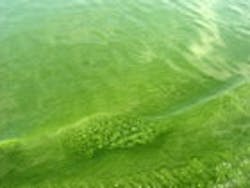SolarBee VP Addresses House Committee on Harmful Algal Blooms
Dr. H. Kenneth Hudnell, SolarBee’s vice president and director of science, gave invited testimony on harmful algal blooms (HABs) to the U.S. House of Representatives’ Committee on Science and Technology, Subcommittee on Energy and the Environment on July 10. Earlier this month, he was elected to the National Harmful Algal Bloom Committee (NHC), headquartered at the Woods Hole Oceanographic Institute.
Hudnell informed the Congressional Subcommittee on:
• Freshwater HAB cells and their toxins;
• Freshwater HAB risks for human health and ecosystem sustainability;
• Occurrence, causes and costs of freshwater HABs;
• Approaches to freshwater HAB control; and
• The need for improved legislation to comprehensively address HABs from freshwater (EPA jurisdiction) to oceans (National Oceanic and Atmospheric Administration jurisdiction).
Testimony provided by Hudnell, two Congressmen and three other scientists was followed by 1.5 hours of questions and answers concerning the need to authorize and appropriate funds for scientific research that will produce solutions for controlling HABs in all of our nation’s waters.
Whereas the National Oceanic and Atmospheric Administration led the development of a National Research Plan for addressing HABs in oceans, estuaries and the Great Lakes, the EPA has not developed a National Research Plan for addressing HABs in our rivers, streams, ponds, reservoirs and other lakes. Freshwater HABs produce some of the most potent toxins known, posing significant risks to human health and ecosystem sustainability. There is widespread agreement that the occurrence of freshwater HABs is rapidly increasing in the U.S. and worldwide. Control strategies should target the HAB requirements of nutrients and quiescent, stagnant water.
The NHC is composed of leading scientists conducting freshwater and marine HAB research. Hudnell advocates a coordinated approach to HAB research in all of our nation’s waters.
Source: SolarBee
